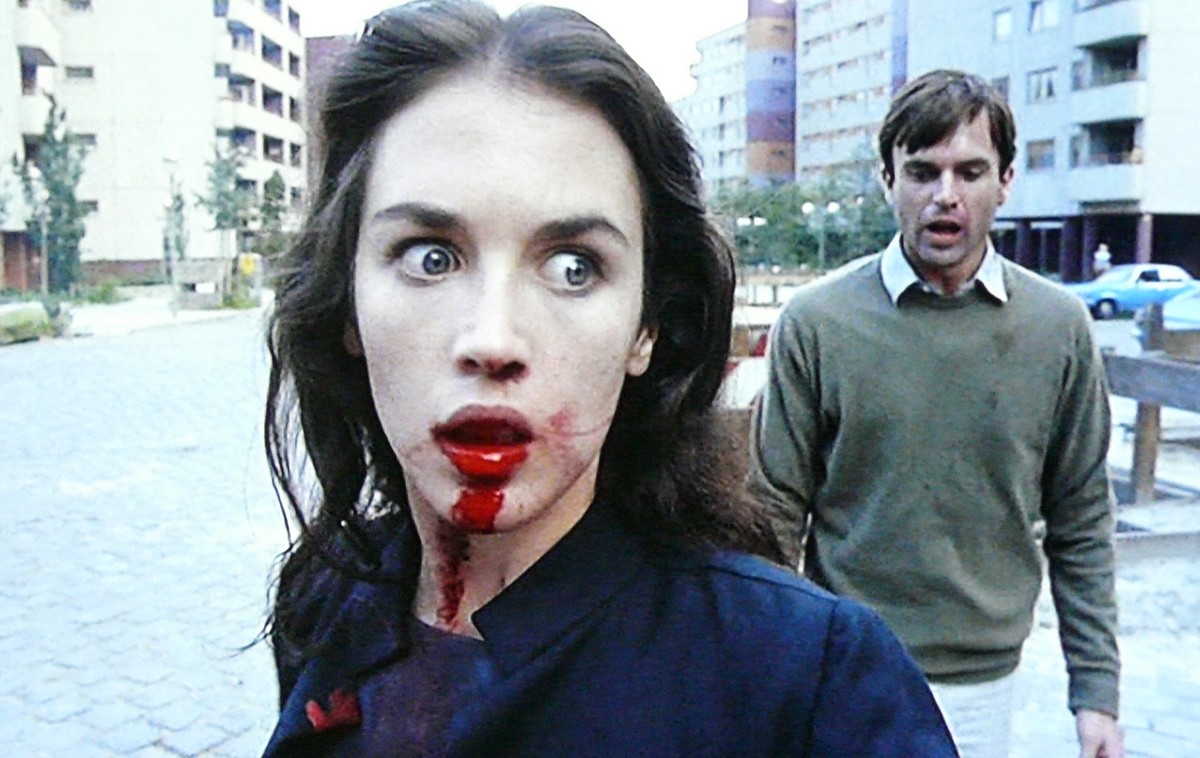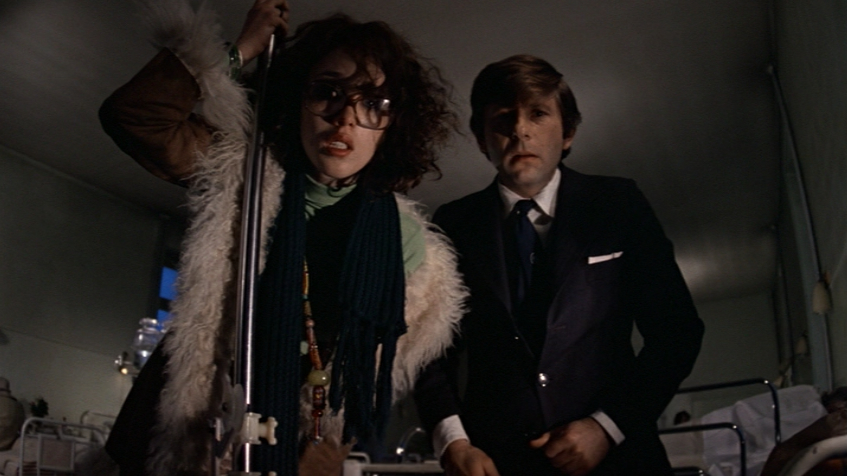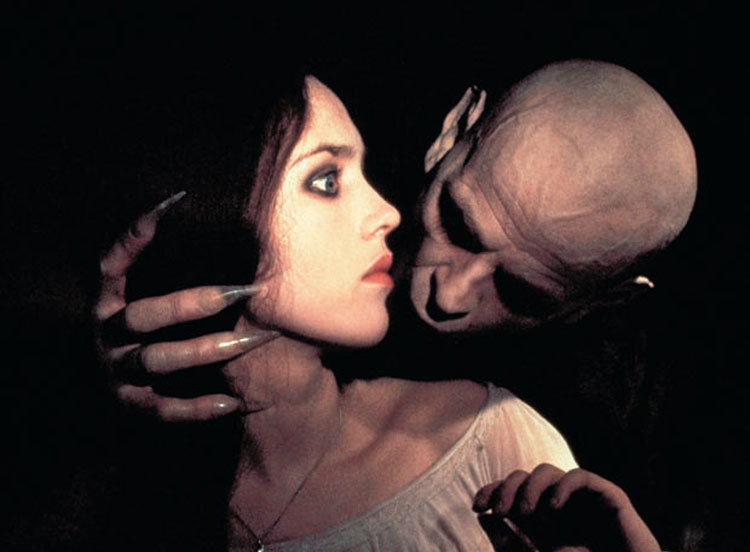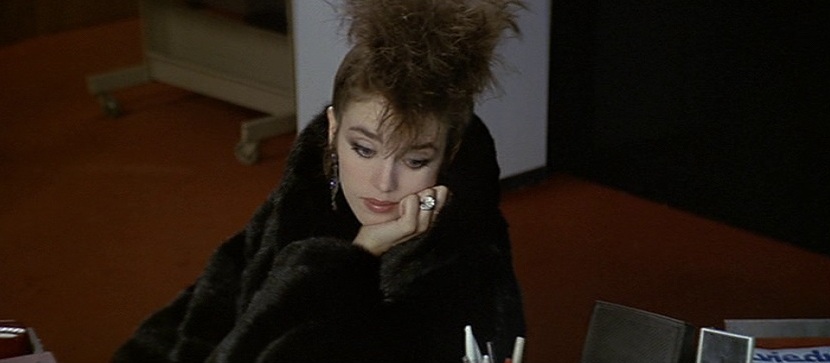
Upon her transition from roles in La comédie française to silver screen performances, French actress Isabelle Adjani quickly established herself as the melancholic darling of European art house cinema of the 1970s and 1980s, before crossing into the territory of historical epics in the years to follow.
In what is best described as typecasting done astoundingly right, her pale features, intense gaze and overall expressionistic visage earned her a key place in films of a decidedly dark, bleak tone; portraying disturbed heroines and gothic ingénues. However, at times she has defied the stereotype imposed upon her to bring dimension to characters of many genres.
To this date Adjani is the only actress to win five César awards for Best Actress. Here is a selection of the top films that showcase the acting force of Isabelle Adjani, ranked from worst to best, or more accurately ‘least-best’ to ‘very best’.
8. The Tenant

The Tenant is the third film in what would come to be known as Roman Polanski’s “Apartment Trilogy”. This psychological thriller film stars director Polanski himself as Trelkovsky, a Polish man inhabiting an Parisian apartment—the previous tenant of which having committed suicide under mysterious circumstances—where he finds himself subjected to increasingly disturbing occurrences and the relentless suspicion from his hostile neighbours, at one point suspecting they aim to kill him.
While clearly a supporting role for Adjani as Stella, a friend and casual romantic acquaintance of Trelkovsky’s, it is the against-type role of an unassuming, simple character that earns Isabelle Adjani’s performance in Roman Polanski’s The Tenant a spot amongst her top roles.
Much like the tone of the film, Adjani brings to her character an air of innocence and naiveté whilst seemingly ‘absent’, as if preoccupied with darker notions. The ambiguity of which is amplified by the increasingly paranoid viewpoint of protagonist Trelkovsky.
7. Nosferatu the Vampyre

One of Adjani’s first departures into the horror genre, Nosferatu the Vampyre is Werner Herzog’s 1979 art house remake of F.W. Murnau’s 1922 expressionist classic. Several notable differences are the film’s closer adherence to the source material with regards to the names of the characters, coupled with the departure from the novel’s romantic origins with the inclusion of a very bleak, ominous conclusion.
Isabelle Adjani plays the role of Lucy Harker, one of her more ingénue roles as the gothic object of Count Dracula’s desires; touched by darkness and prone to thousand yard stares and profound lamentations that even the greatest of thespians would have trouble making sound natural, such as:
“Stars fade and reel in confusion. Time passes in blindness. Rivers flow without knowing their course. Only death is cruelly sure”.
Much like the case of The Tenant, Nosferatu the Vampyre is an example of a truly tremendous film ranked lower amongst this top eight, as Adjani’s performance isn’t truly at the forefront. It’s interesting to see to what extent her performance pays homage to the silent film origins of the Nosferatu story.
Many of her interactions with Count Dracula showcase a type of mute, expressive terror not commonly seen in post-silent-era cinema. One cannot help but imagine that had Isabelle Adjani’s filmmaking career taken place during the silent film era, she would have undoubtedly brought the film-going public to their knees.
6. Subway

Subway—an early film by the crowned prince of the cinema du look movement Luc Besson, and referred to affectionately by this author as Léon: The Percussionist—is a 1985 French film centering around a man, Fred, played by Christopher Lambert, hiding out in the subterranean world of the Paris Metro system from the gangsters from whom he has stolen. Adjani portrays the wife of the powerful crime figure whom Fred has wronged. Weary of her domesticated existence, a romance develops between the two.
An atmospheric departure from the typically sullen productions Adjani had by this point grown accustomed to, Subway’s very polished, bombastic, car-chases-and-guitar-solos aesthetic was foreign ground. Luckily the “woman in peril” aspect of the “mob wife bored of her sheltered life and seeking new thrills” cliché played well enough to Adjani’s strengths to make her a strong supporting character with a depth uncommon to similar archetypes.
At one particularly iconic scene where Adjani’s character, Héléna, breaks the facade of submissive mob wife by frankly informing the woman with whom she’s dining that she couldn’t care less about her boring ramblings.
She is ordered to leave the table, but doesn’t go down without a fight, famously proclaiming “Monsieur le préfet, votre dîner est nul, votre baraque est nulle, et je vous emmerde tous.” Which stacks up remarkably well next to her Nosferatu soliloquies; roughly translating to, “Mr. VIP, your dinner is rubbish. Your house is rubbish. Fuck all of you”.
5. La journée de la jupe

Never released officially in English, but popularly referred to as Skirt Day, La journée de la jupe is a television film about a middle school literature teacher who—upon discovering one of her students has brought a handgun to class—snaps under the constant abuse from her unruly students and takes the class hostage; a standoff ensues as questions of culture, sexism and religion are evoked.
Although somewhat restrictive in terms of the very fixed set—which brings an almost theatrical spirit to the film—and at times excessively televisual in its melodramatic tendencies, La journée de la jupe may well also be Isabelle Adjani’s most personal film.
Adjani herself is the daughter of a German mother and a Kabyle father from Algeria, and this connection serves the film’s motifs of cultural diversity well. La journée de la jupe is Adjani’s most recent work to earn her the César, and a rare but well-executed foray into her playing a more authoritative role.